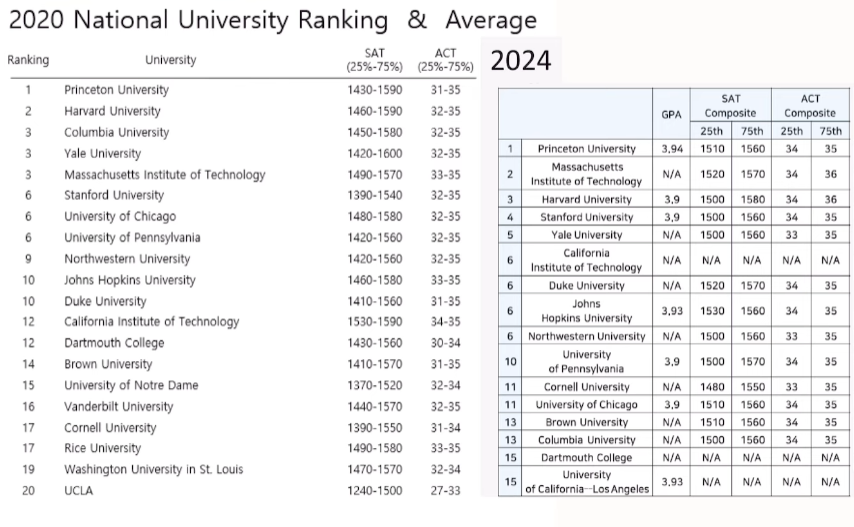On December 11, 2024, we hosted an online seminar and received numerous insightful questions. In this post, we address the remaining unanswered questions from that session.
Question 1: What are your thoughts on Passion Projects?

Passion Projects can be conducted within a school club or externally, but it is beneficial to align them with the following Eight Essential Competencies for College Admission:
-
Science, Technology, Engineering
-
Language, Expository Writing
-
Humanities & Social Science
-
Arts & Athletics
-
Communication & Leadership
-
Culture
-
Quantitative Reasoning with Data
-
Volunteerism
The best approach is to integrate multiple fields to achieve a single purpose. For example, during the seminar, we discussed a project aimed at helping students from multicultural families with after-school activities, which involved Science Research, Essay Writing, Community Volunteering, and Cultural Engagement.
Best Strategies for Passion Projects:
-
Pursue projects with a clear and meaningful purpose.
-
Engaging in multiple projects is beneficial, as colleges appreciate diverse extracurriculars.
-
However, a strong GPA is crucial to ensure these activities are impactful.
Question 2: Should my 11th-grade child quit swimming if they haven't reached the national level?
If continuing to swim provides personal growth and consistency, they should persist. However, if quitting allows them to significantly enhance another area of their application, reallocating time could be a viable option.
Key Considerations:
-
Athletic Ratings in College Admissions:
-
Tier 1: National-level athlete
-
Tier 2: State-level athlete
-
Tier 3: Active participation with leadership/local recognition
-
Tier 4: No significant sports involvement
-
-
Quitting sports could lower their athletic category score from Tier 3 to Tier 4 or 5.
-
If they cannot achieve a game-changing improvement elsewhere, maintaining sports participation is recommended.
Question 3: Should students continue sports or music if they are not excelling?

Continuous participation in sports demonstrates teamwork, perseverance, and discipline, which admissions officers value. Colleges evaluate students across four categories: Academic, Extracurricular, Athletic, and Personal.
-
If the student can gain a major advantage elsewhere by quitting, reallocation of time is justified.
-
If no better alternative exists, continued participation is valuable, even without varsity status.
Question 4: Should my child continue Choir (Varsity) and Tennis (JV), or switch to elective courses?
-
Choir (EC) and Tennis (Athletics) place them in at least a 3rd-tier rating.
-
If quitting allows them to significantly enhance another rating category, they may consider it.
-
Otherwise, maintaining consistency over four years strengthens their application.
Question 5: Is participation in a top state-level youth orchestra a strong extracurricular?

-
National Level: Tier 1
-
State Level: Tier 2
-
Long-term participation: Tier 3
-
School representative/notable participation: Tier 3+
-
No participation: Tier 4
Without a leadership position, they won’t reach Tier 2, but continued involvement in a top state-level orchestra is still valuable. If they can replace it with a more impactful activity, they may consider switching.
Question 6: Have SAT score expectations increased due to test-optional policies?



-
The 75th percentile SAT score remains around 1590.
-
The 25th percentile has slightly increased due to growth in international student applications, whose scores tend to be higher.
-
Since SAT is now optional, only students with strong scores submit them, raising reported averages.
Question 7: Should students take both AP Lang and AP Lit?
-
Almost 100% of Top 20 university admits take at least one of these courses.
-
AP Lang and AP Lit demonstrate high-level English proficiency and strengthen applications.
-
While taking both is beneficial, it is not mandatory. However, students should not take a lower-level English course in 12th grade.
Question 8: Should I take AP Seminar or Grade 10 English Honors?
-
AP Seminar is strongly recommended as it enhances research, seminar, and writing skills.
-
If no scheduling conflicts exist, taking AP Seminar is the best choice.
-
If it conflicts with two other AP courses, weigh the trade-offs before deciding.
Question 9: Should I prioritize a university with an overall strong reputation or one with a strong engineering program?
-
Engineering-focused schools (e.g., Purdue, Georgia Tech, UIUC, Texas Austin, Virginia Tech) tend to have more competitive engineering admissions.
-
Career success depends more on individual effort rather than school prestige.
-
Choose based on personal strengths and career goals.
Question 10: How much does a low 9th-grade GPA impact college applications?
-
Colleges prefer an upward trend in GPA.
-
UC Berkeley evaluates the "pattern of grades over time."
-
A weak 9th-grade GPA is less detrimental if performance improves in later years.
-
Competitive high schools provide context for admissions officers when comparing applicants.
Question 11: Is taking an online summer Spanish course beneficial? Would extra math courses help?
Question 12: Should I take a college-level biology course instead of AP Bio at my high school?
-
If a high school offers a course, take it there rather than externally.
-
External courses are valuable only after completing the highest level available at school.
-
Prioritize rigorous in-school coursework first before considering external courses.
Final Thoughts
This concludes Part 2 of our Q&A session from the December 2024 online seminar. For further inquiries, feel free to contact us at A-One Institute.
Thank you!
seminar
q&a
